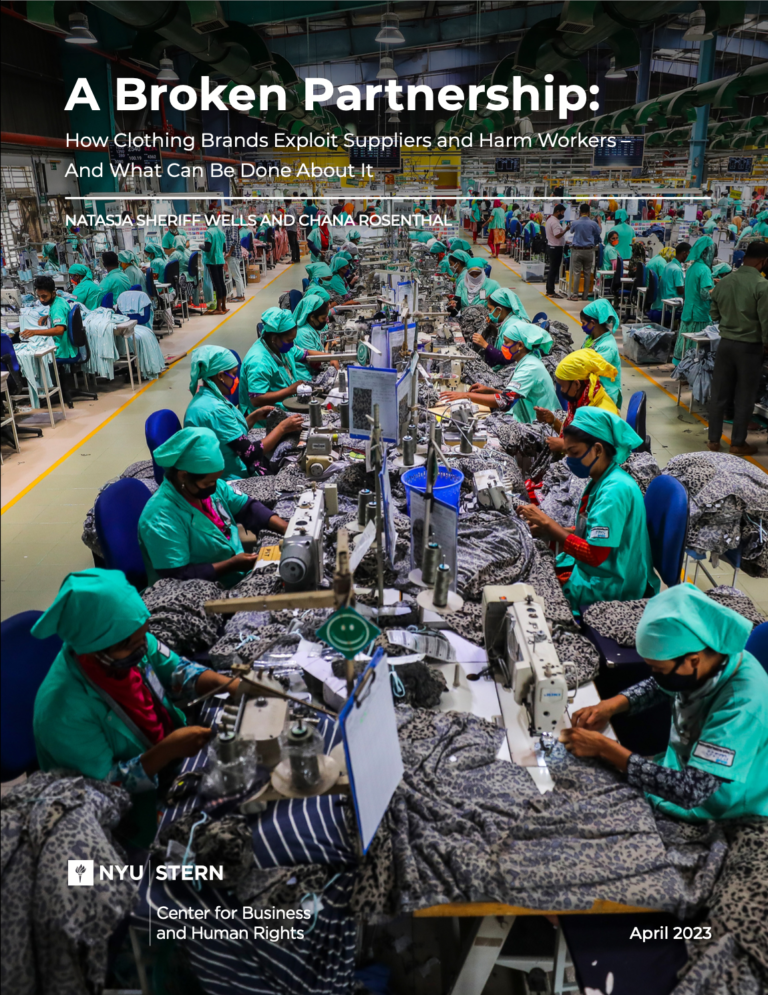The Center’s report includes a series of practical recommendations for how clothing brands and retailers can establish more constructive relationships with outsourced suppliers, with the goal of protecting the human rights and economic well-being of workers.
Harmful buyer practices include pressuring suppliers for unreasonable price reductions, delaying delivery and withholding payment, canceling bookings and projections, and relying on sourcing intermediaries who exacerbate exploitative practices.
The report recommends that corporate buyers immediately embrace the following reforms:
- End unreasonable price reductions and excessive discounting practices that can result in reduced worker pay.
- Cease delaying order delivery and commit to payment timelines that take suppliers’ raw material purchases into account.
- Recognize that a projection or booking is as good as a contract for many suppliers, who prepare for production well in advance of the issuance of a formal purchase order.
- Increase transparency and communication with third-party sourcing agents.
- Reconcile commitments to factory safety and worker well-being with the commercial terms negotiated with manufacturers.

